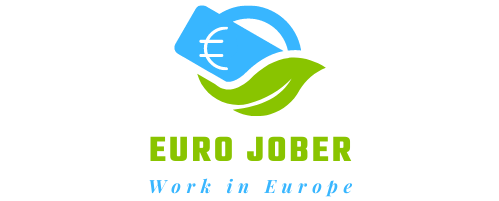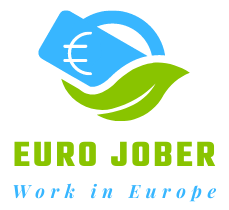Securing a job in the European Union (EU) is a multifaceted challenge, influenced by various factors including economic conditions, language skills, labor laws, and cultural differences.
This comprehensive article aims to provide an in-depth understanding of the difficulties associated with finding employment in the EU, exploring the diverse landscape of its member states and offering practical insights for job seekers.

Introduction to EU jobs
The European Union, with its 27 member states, presents a unique and diverse job market. While some regions boast booming industries and low unemployment rates, others face economic stagnation and high competition for jobs.
The ease or difficulty of finding a job in the EU is contingent on numerous factors, including economic conditions, language proficiency, education and skill levels, and the specific labor laws of each country.
This article will explore these challenges in detail, providing a comprehensive overview of what job seekers can expect when looking for employment in the EU.
Chapter 1: Economic Landscape and Job Market Conditions
Economic Variability Across Member States
The economic health of EU member states varies significantly, impacting job availability and security. Northern and Western European countries, such as Germany, the Netherlands, and the Nordic nations, typically exhibit stronger economies and lower unemployment rates. These regions benefit from robust industrial sectors, advanced technology industries, and comprehensive social safety nets.
In contrast, Southern European countries, including Spain, Greece, and Italy, have faced prolonged economic challenges, especially following the 2008 financial crisis and the subsequent Eurozone debt crisis. These countries have struggled with high unemployment rates, particularly among young people, and slower economic recovery.
Industry-Specific Job Markets
Certain industries offer more opportunities than others. For instance, Germany is renowned for its engineering and automotive sectors, while Ireland and the Netherlands are hubs for technology and finance. The healthcare sector is also a significant employer across the EU, driven by an aging population and the increasing demand for healthcare services.
Chapter 2: Language Barriers and Cultural Differences
The Importance of Multilingualism
Language proficiency is a critical factor in the European job market. While English is widely spoken and often used as a business lingua franca, many employers require proficiency in the local language. For example, fluency in German is essential for most jobs in Germany, and French is crucial in France and parts of Belgium.
Cultural Adaptation
Cultural differences also play a significant role in the job search process. Understanding local business etiquette, work culture, and communication styles can greatly enhance a job seeker’s chances. For instance, German companies may value punctuality and precision, while Mediterranean countries might emphasize personal relationships and networking.
Chapter 3: Labor Laws and Employment Regulations
Diverse Legal Frameworks
Each EU country has its own set of labor laws and regulations, which can complicate the job search for foreigners. These laws govern various aspects of employment, including contract types, working hours, minimum wage, and workers’ rights.
Work Permits and Visa Requirements
For non-EU nationals, obtaining the necessary work permits and visas can be a significant hurdle. The Blue Card scheme is one such initiative aimed at attracting highly skilled workers to the EU, but the application process can be complex and time-consuming.
Chapter 4: Education and Skill Levels
Recognition of Qualifications
One of the challenges faced by job seekers is the recognition of foreign qualifications. While the EU has frameworks in place to facilitate the recognition of academic and professional qualifications, discrepancies still exist, and some employers may prefer local credentials.
Skill Shortages and Surpluses
Certain sectors in the EU experience skill shortages, creating opportunities for job seekers with the right qualifications. For example, there is a high demand for IT professionals, healthcare workers, and engineers. Conversely, other sectors may have a surplus of workers, leading to intense competition for jobs.
Chapter 5: Job Search Strategies and Resources
Utilizing Online Platforms
Online job portals such as EURES (European Employment Services), LinkedIn, and country-specific job boards are valuable resources for job seekers. These platforms provide access to a wide range of job listings and allow applicants to apply directly online.
Networking and Professional Associations
Networking remains a crucial aspect of the job search process. Joining professional associations, attending industry events, and leveraging social media platforms can help job seekers build connections and uncover job opportunities that may not be advertised publicly.
How to be prepared for EU job market?
Overcoming the Challenges
While finding a job in the European Union can be challenging, it is not insurmountable. Job seekers who are well-prepared, adaptable, and persistent can navigate the complexities of the EU job market. Gaining proficiency in local languages, understanding cultural nuances, and familiarizing oneself with the legal requirements are crucial steps toward securing employment.
The Role of Resilience and Adaptability
In conclusion, the difficulty of getting a job in the EU varies depending on numerous factors, but resilience and adaptability are key. By leveraging available resources, honing relevant skills, and maintaining a positive attitude, job seekers can enhance their prospects and find fulfilling employment in this diverse and dynamic region.
The European Union offers a wealth of opportunities for those willing to navigate its complexities. Whether you are a recent graduate, a skilled professional, or someone looking to start anew in a different country, understanding the challenges and preparing accordingly can make all the difference in your job search journey.

